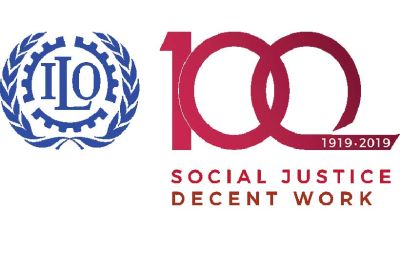A new UN International Labour Organisation (ILO) Declaration on ‘the Future of Work’ – adopted today at the ILO’s Centenary conference - means that governments and employers must work with trade unions, and redouble their efforts to ensure decent work in a global economy radically changed by free trade and deregulation, digitalisation and the climate crisis.
The Centenary Declaration calls on all its members – governments, employers and trade unions of 187 states worldwide – to work together, and through ‘social dialogue’, for
- Full employment and decent work, including trade, industrial and sectoral policies that promote decent work;
- Adequate protection including an adequate minimum wage (statutory or negotiated) and safety and health at work;
- Gender equality;
- Lifelong learning and quality education for all;
- Universal access to comprehensive and sustainable social protection;
- Appropriate privacy and personal data protection;
And calls on the ILO to directs its efforts towards its human-centred approach to the future of work including effective recognition of the right to collective bargaining.
“The International Labour Organisation is needed more than ever before” said Luca Visentini, General Secretary of the European Trade Union Confederation. “In far too many countries, including in Europe, work does not a guarantee a life without poverty. In too many countries work is far from decent for too many working people.
“On the centenary of the ILO, governments, employers and trade unions have agreed a Declaration to work together for full employment, decent work and workers’ rights. Trade unions across Europe and the world will do all they can to make sure that the fine words of this Declaration are put into practice in reality for all working people in all countries.
“Globalisation, trade, deregulation, digitalisation and climate change are transforming the world of work and require new actions and new rules to achieve decent work for all. That is why this ILO Centenary Declaration is so significant, and why we need extraordinary commitment and efforts to implement it.”

